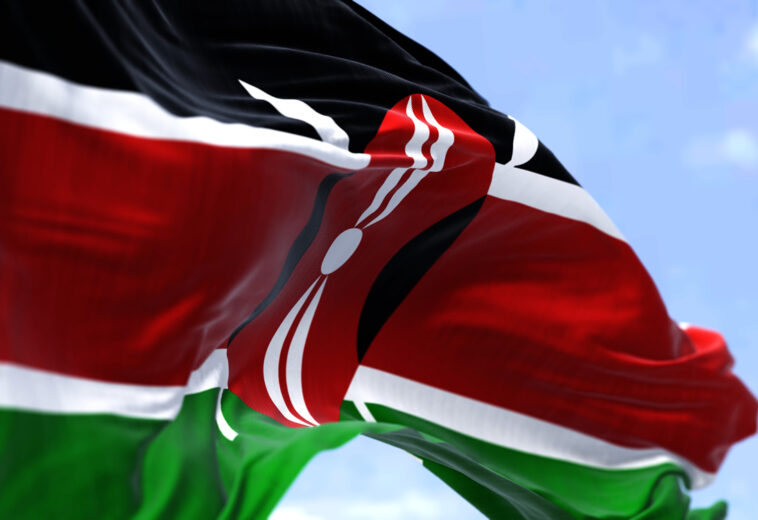Ghana is a country located in sub-Saharan Africa with a growing economy that has experienced steady progress in recent years. The government’s efforts to improve the economy have led to increased investment, improved infrastructure, and greater foreign exchange earnings. There are even more prospects for economic growth in the Ghanaian economy if the right policies and initiatives are implemented.
Recent Economic Performance
Ghana has experienced sustained economic growth in recent years. However, this growth has been uneven, and the country continues to face challenges such as high inflation, public debt, and trade deficits. Nevertheless, the Ghanaian government remains committed to promoting economic growth through various policies and reforms.
Government Policies and Reforms
One of the significant factors driving economic growth in Ghana is the government’s efforts to implement business-friendly policies and reforms. The government has introduced measures to enhance the ease of doing business, attract foreign investment, and promote trade. The establishment of the Ghana Investment Promotion Centre (GIPC) aims to facilitate investment in the country, while tax reforms have helped reduce the burden on businesses.
Natural Resource Development
The natural resources of Ghana are one of the key drivers of its economic growth. The country is rich in minerals such as gold, bauxite, manganese, and diamonds and is also a major producer of cocoa. The government has taken steps to develop these resources and attract foreign investment. The government has been striving to diversify the economy, but there is still potential in the extractive industries. The development of the oil and gas industry has been a major success story for Ghana, and there are opportunities for further exploration and investment.
Agriculture
Agriculture is another area with significant growth potential. Ghana has a favourable climate for agriculture and is already a major producer of cocoa, cashew nuts, and other crops. The government has been working to increase productivity and value addition in the agriculture sector, which will help create jobs and increase exports.
Infrastructure Development
Infrastructure development is also essential for economic growth in Ghana. The government has been investing heavily in transportation, either by constriction or expansion, which includes roads, railways, highways, ports, and airports, to improve connectivity within the country and with other regions. Efforts to improve the country’s energy and telecommunications infrastructure are ongoing, with the goal of providing reliable and affordable services to businesses and consumers. This will facilitate trade and investment and make it easier for people to access goods and services.
The manufacturing sector
The manufacturing sector is an area with significant growth potential, especially with Ghana’s large and growing consumer market. There are opportunities for local and foreign investors to set up manufacturing facilities to produce goods for domestic consumption and export. The government has been offering incentives for manufacturing companies to invest in the country, including tax holidays and access to credit.
Tourism
Tourism is another promising area for economic growth in Ghana. The country has a rich cultural heritage, including historic sites, festivals, and traditional arts and crafts. The government has been promoting tourism as a key development sector and investing in infrastructure and marketing to attract more visitors. This will generate tourism revenue, create jobs, and promote cultural exchange.
Human Capital Development
Improving education and healthcare outcomes and workforce development are essential for economic growth in Ghana. The government has made progress in increasing access to primary and secondary education and implementing a national health insurance scheme. Technical and vocational education and training centres have also been established to improve workforce development.
Regional Integration
Ghana’s membership in the Economic Community of West African States (ECOWAS) provides opportunities for regional integration, which can drive economic growth. The government has been working to improve trade and investment relations with neighbouring countries and promote cross-border infrastructure development, such as the West African Gas Pipeline.
Digital Innovation and Technology:
The advent of digital innovation and technology presents an unparalleled opportunity for Ghana to unlock its economic potential. The government’s investment in digital infrastructure and policies supporting a vibrant technology ecosystem are essential components of this vision. By fostering digital entrepreneurship, increasing internet penetration, and developing digital skills among the population, Ghana can drive economic growth in sectors such as e-commerce, fintech, and software development. Furthermore, the growth of the digital economy can attract both domestic and foreign investment, create employment opportunities, and improve productivity across various industries.
Sustainable Development Initiatives:
Recognising the importance of sustainable development, Ghana has embarked on initiatives that harmonise economic growth with environmental stewardship. By prioritising renewable energy, conservation, and sustainable resource management, Ghana can position itself as a global leader in sustainable practises. Embracing eco-tourism, investing in renewable energy projects, and promoting sustainable agriculture can attract environmentally conscious investors, generate green jobs, and bolster the country’s reputation as an eco-friendly destination. These initiatives not only contribute to economic growth but also safeguard Ghana’s natural heritage for future generations.
Fostering an Entrepreneurial Ecosystem:
Ghana’s entrepreneurial spirit has the power to drive economic growth and foster innovation. To tap into this potential, the government has implemented policies and incentives to create a conducive environment for entrepreneurs. By offering tax breaks, facilitating access to credit, and providing incubation and mentorship programmes, Ghana can attract both local and foreign investors to establish businesses. Fostering an entrepreneurial ecosystem not only creates job opportunities but also nurtures innovation, stimulates competition, and positions Ghana as a hub for creativity and enterprise.
Ghana’s economy has experienced steady progress in recent years, but there are still more prospects for economic growth if the right policies and initiatives are implemented. The government’s efforts to promote business-friendly policies in various sectors with continued investment in these critical areas and a commitment to sound economic policies will promote growth and development, making Ghana a major economic player in the region and beyond. By doing so, Ghana can achieve sustainable and inclusive economic growth, create jobs, and improve the lives of its citizens.


